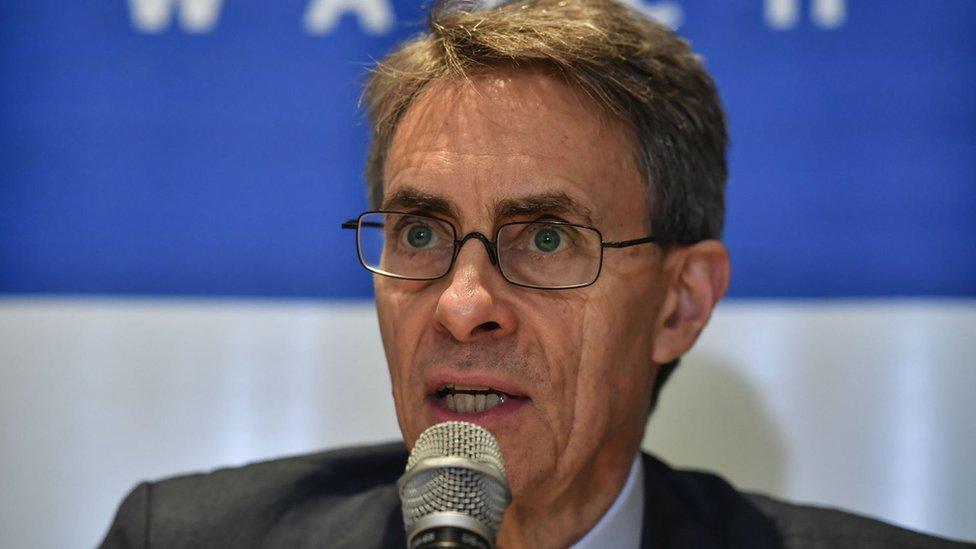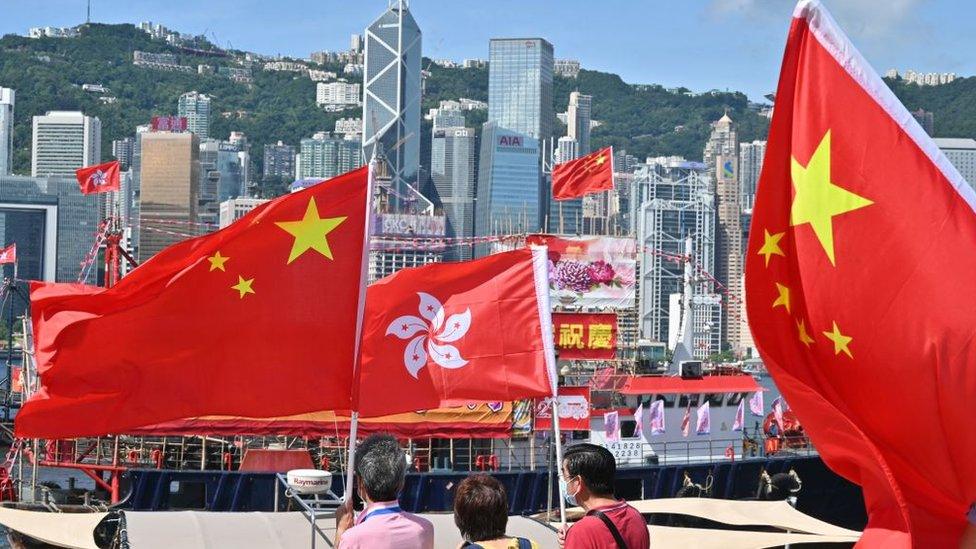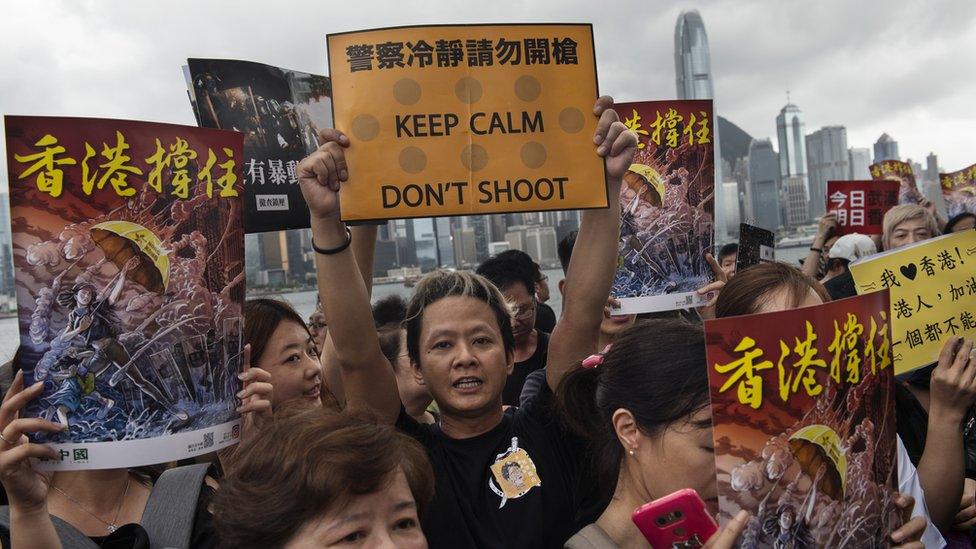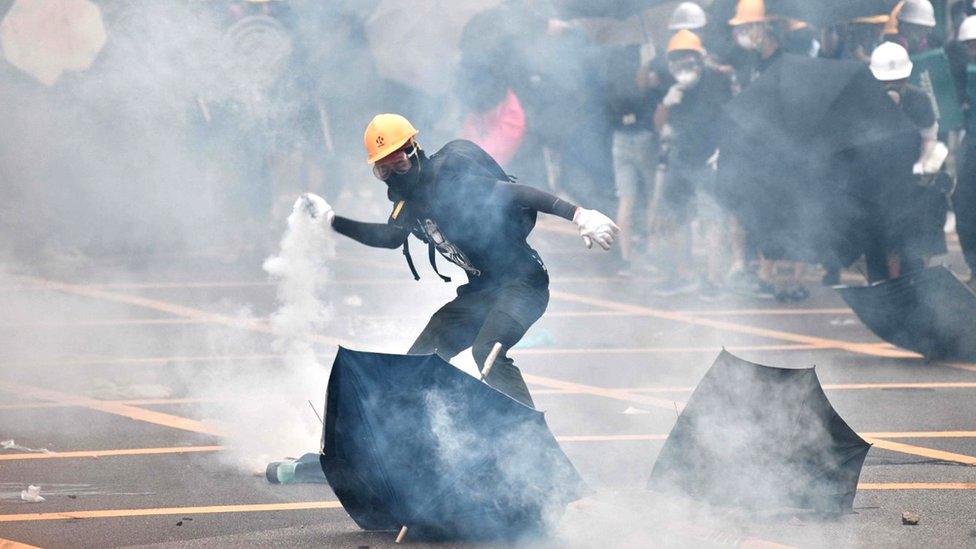HRW chief 'denied entry to Hong Kong' ahead of critical China report
- Published

Kenneth Roth has been allowed to enter Hong Kong in the past
The head of US-based group Human Rights Watch (HRW) says he has been denied entry to Hong Kong, where he had been planning to launch a report focusing on China's "assault" on human rights.
HRW said the move to block Kenneth Roth highlighted "vanishing freedoms" as a result of pressure from Beijing.
Hong Kong has been gripped by months of anti-government protests.
China had threatened sanctions on HRW and other American NGOs, which it said supported "anti-China" forces.
In a video filmed at Hong Kong International Airport and shared on Twitter, Mr Roth - a US citizen - said officials told him he was barred for "immigration reasons", even though he had visited the city before.
The BBC has contacted Hong Kong's immigration department for comment.
This year's HRW annual World Report, Mr Roth said, focused on "how the Chinese government is trying to deliberately undermine the international human rights system, not simply to suppress the rights of people at home but also undermine the ability of anybody else to try to hold China to human rights standards".
Allow X content?
This article contains content provided by X. We ask for your permission before anything is loaded, as they may be using cookies and other technologies. You may want to read X’s cookie policy, external and privacy policy, external before accepting. To view this content choose ‘accept and continue’.

"I had hoped to spotlight Beijing's deepening assault on international efforts to uphold human rights," Mr Roth said in a statement. "The refusal to let me enter Hong Kong vividly illustrates the problem."
Hong Kong has seen major protests since last June.
The demonstrations originally focused on a now withdrawn bill that would have allowed the extradition of suspects to mainland China, but later evolved into a broader movement demanding democratic reform and investigations into police brutality.
Openly critical academics and activists are among those who have been denied entry in recent years.
Hong Kong was a British colony until 1997, after which it was returned to China under the "one country, two systems" arrangement.
The history behind Hong Kong's identity crisis and protests - first broadcast November 2019
Under the agreement, Hong Kong is expected to have a high degree of autonomy from mainland China, and residents enjoy more freedoms than those on the mainland.
- Published1 July 2022

- Published28 November 2019

- Published4 September 2019
